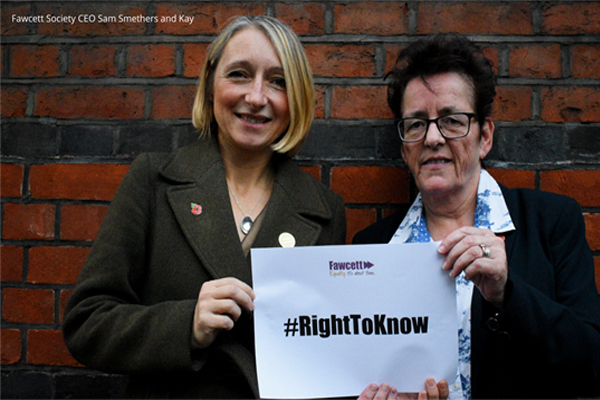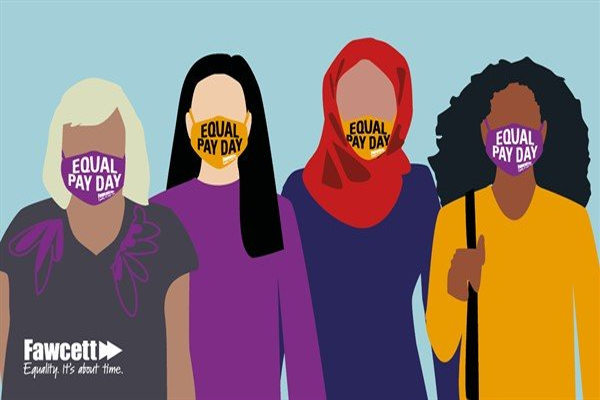The Fawcett Society has revealed a slight reduction in the UK’s gender pay gap on Equal Pay Day, today. However, the UK charity campaigning for gender equality and women’s rights at work, home and in public life, warns that the full impact of Covid-19 on the gender pay gap is still ‘unclear’.
The Fawcett Society has confirmed that Equal Pay Day 2020 (the day in the year when women effectively, on average, stop earning relative to men) falls today on 20th November. On a positive note, Equal Pay Day this year has moved 6 days later in the year, compared to 14th November in 2019. The mean gender pay gap for all employees, not just those working full-time, is 14.6% this year, down from 16.3% last year.
COVID-19 RELIABILITY WARNING
While a reduction in the Gender Pay Gap is welcome, the Fawcett Society warns that this year’s data comes with a significant reliability warning given the difficulties the ONS has had in data collection due to the coronavirus pandemic, with a quarter of the usual sample of employer pay data missing (44,000 out of 180,000 employers) and the impact of furlough unclear.
“We welcome a fall in the gender pay gap. However, we only have a partial picture because the impact of coronavirus means a quarter of employers are missing from the data set,” stated Sam Smethers, Chief Executive of The Fawcett Society. “They are likely to be the ones hit hardest by the pandemic. Even on the figures we do have, we will need to wait until next year to know if there really has been a significant fall. The short-term impact of furlough also makes the figures less clear.
“We also know there are a number of risks to women’s pay and employment as a result of coronavirus which could turn the clock back for a generation. Mothers are more likely to have had their work disrupted due to unequal caring roles and a lack of childcare. Men are more likely to have worked under furlough, and to have had their pay topped up. The second lockdown looks set to hit women working in hospitality and retail hard while predominantly male-dominated sectors like construction and manufacturing are still at work.”

TAKE PART IN EQUAL PAY DAY
You can get involved in Equal Pay Day in various ways, according to the Fawcett Society. They include:
Wear an Equal Pay face mask
Design and wear an Equal Pay face mask to share the message that we need to take action on the gender pay gap.
Write to your MP
Last year, the Fawcett Society launched launched the Right to Know campaign to give women who suspect they are being paid less than their counterpart, the legal right to have this information. According to the charity:
- Only 24% of workers say that salaries are discussed openly in their workplace.
- Four in ten people (40%) do not know that women have a right to equal pay for work of equal value.
In October the Equal Pay Implementation and Claims Bill went to Parliament and was passed to a second reading. So now it’s putting pressure on MPs to support the Bill. You too can write to your MP and ask them to pledge their support.
Sign Kay’s Petition
Last year, after 10 years of working as a chef for a large catering company, Kay found out she was being paid much less than a male colleague – even though they did the exact same job. She’s calling for all women to have the legal Right to Know if they are being paid less than a male colleague – and her signature has already gained over 60,000 signatures. Sign her petition now to demand the Right to Know.
Check out this year’s Fawcett Society report on the gender pay gap here.
Did you know just 31% of working women in the UK believe their bosses would tell them if their male colleagues earned more for the same work, if they asked. Click here to read more.







































